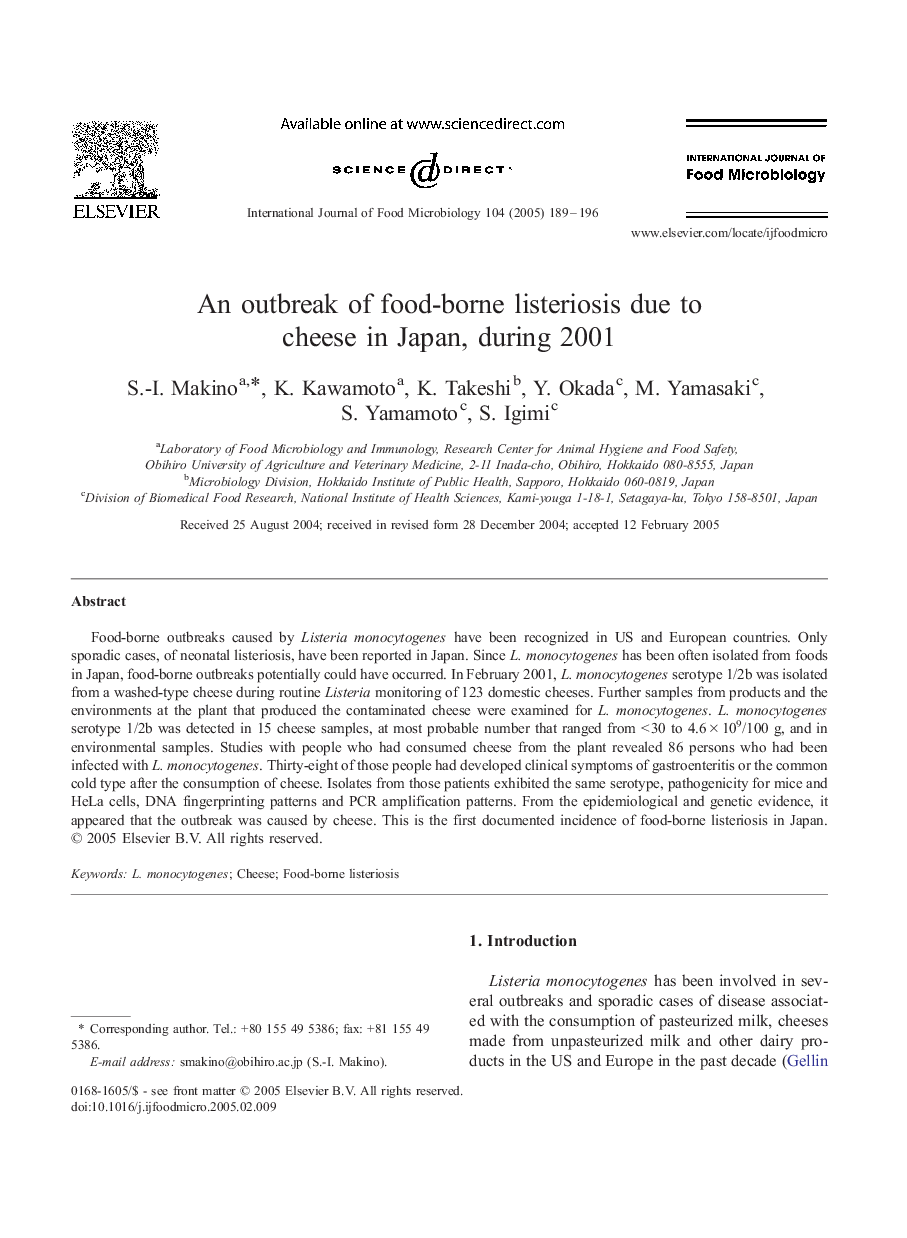| Article ID | Journal | Published Year | Pages | File Type |
|---|---|---|---|---|
| 10107260 | International Journal of Food Microbiology | 2005 | 8 Pages |
Abstract
Food-borne outbreaks caused by Listeria monocytogenes have been recognized in US and European countries. Only sporadic cases, of neonatal listeriosis, have been reported in Japan. Since L. monocytogenes has been often isolated from foods in Japan, food-borne outbreaks potentially could have occurred. In February 2001, L. monocytogenes serotype 1/2b was isolated from a washed-type cheese during routine Listeria monitoring of 123 domestic cheeses. Further samples from products and the environments at the plant that produced the contaminated cheese were examined for L. monocytogenes. L. monocytogenes serotype 1/2b was detected in 15 cheese samples, at most probable number that ranged from <Â 30 to 4.6Â ÃÂ 109/100 g, and in environmental samples. Studies with people who had consumed cheese from the plant revealed 86 persons who had been infected with L. monocytogenes. Thirty-eight of those people had developed clinical symptoms of gastroenteritis or the common cold type after the consumption of cheese. Isolates from those patients exhibited the same serotype, pathogenicity for mice and HeLa cells, DNA fingerprinting patterns and PCR amplification patterns. From the epidemiological and genetic evidence, it appeared that the outbreak was caused by cheese. This is the first documented incidence of food-borne listeriosis in Japan.
Keywords
Related Topics
Life Sciences
Agricultural and Biological Sciences
Food Science
Authors
S.-I. Makino, K. Kawamoto, K. Takeshi, Y. Okada, M. Yamasaki, S. Yamamoto, S. Igimi,
